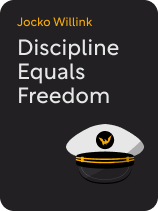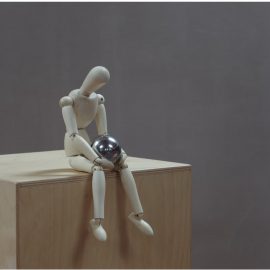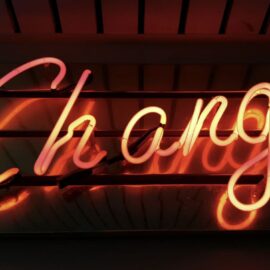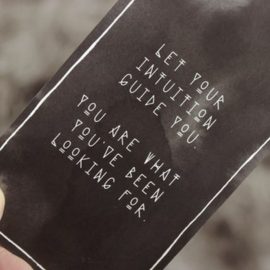

This article is an excerpt from the Shortform book guide to "Discipline Equals Freedom" by Jocko Willink. Shortform has the world's best summaries and analyses of books you should be reading.
Like this article? Sign up for a free trial here.
Why is procrastination a problem? Do you know how to get over procrastination?
Procrastination prevents you from getting the most essential work done, whether it be for your job or for your personal life. In Discipline Equals Freedom, Jocko Willink explains that procrastination can cause stress, which has negative physical and mental health effects.
Check out how to get over procrastination so you can be your best productive self.
Powering Through Procrastination
Procrastination is problematic for several reasons. Willink points out that when you procrastinate, you stress yourself out. Delaying what you know needs to be done causes anxiety and dread. In a competitive context, delaying your progress can also allow your competition to get the upper hand. Worst of all, the things you procrastinate on now might be put off forever. Hesitation only inspires more hesitation in a self-defeating loop. Don’t get caught in the loop.
According to Willink, the first rule for how to get over procrastination is: Don’t hesitate, take action. For example, get up when your alarm goes off. Throw your covers off and move to your feet before you can even think about slapping the snooze button. Starting your day with strict discipline will help you stay on that path for the rest of your day. For instance, because you got up when you were supposed to, you have plenty of time to get your workout in before work.
On the other hand, if you fall off the path early, it’s easier to spiral and justify abandoning the rest of your goals. For example, If you hit the snooze button once or twice, you might not have time to exercise before work. So, you skip the workout. Since you don’t have to worry about eating too much before your workout, you might as well have an extra breakfast burrito…or two. Can you see the slippery slope?
Willink says you can set yourself up for success by removing things that cause distractions or unproductive contemplation. For example, silence your phone and remove it from your desk when you’re sitting down to work in the office or at home.
A Note on Procrastination
When you think you need a break, take it the next day. Willink says that by the next day, you may realize you didn’t need the break and were simply lacking discipline in that moment. If you’re still tired the next day, rest. The point is to avoid giving in to the immediate gratification of taking a break, which might lead to the spiral of procrastination and cause you to abandon your discipline.
Is Procrastination Really That Bad?
Willink emphasizes the negative effects of procrastination, but psychological research suggests that this process is natural, and even shared with other animal species. One study that observed pigeons completing a task found that the birds were more likely to respond to signals given near the end of the task’s duration rather than signals at the beginning of the task. These results suggest that behavior is better reinforced closer to deadlines.
So, maybe procrastination isn’t as bad as Willink suggests? As long as there are deadlines to spur you into action, you can overcome your distractions and instant gratification during “crunch time” to complete the tasks that keep you competitive and help you reach your goals.
But what about goals that require a lot of work or that demand incremental progress to achieve? If you leave too much of a heavily demanding task to do at the last minute, this could be damaging to your health, relationships, and life in general. For example, if you’re writing a book and leave most of the work until a few days within the deadline set by your publisher, you may have to neglect your family and lose multiple nights of sleep to get the necessary work done. If your goal is to run a marathon in six months, you can’t put off the work of getting into shape. Your body needs time to incrementally adjust to your workouts and recover properly if you hope to run 26.2 miles without hurting yourself.
So, it’s important to adjust your long-term plans for procrastination by setting short-term deadlines in order to distribute the workload. Consider using the earlier example from the 12 Week Year to make a plan that works for you.
However, Willink’s concern that procrastination may prevent you from reaching your goals altogether still applies when you have goals without fixed deadlines. For example, maybe you want to repair your relationship with a loved one or start stand-up comedy. Without a deadline to eventually kick you into gear, you might put off these goals forever.
To give yourself a sense of urgency, consider a reminder that your life is finite and you only have so much time to accomplish your goals. Ryan Holiday, author of The Daily Stoic, suggests using a “Memento Mori Calendar” that displays the number of weeks in an 80-year life as boxes on one page. He checks these boxes as a visual reminder of the time he likely has left to live. This functions as a literal “dead”-line. Holiday also recommends carrying a reminder of your mortality with you throughout your day, like this coin that reads “memento mori,” Latin for “remember that you will die.”

———End of Preview———
Like what you just read? Read the rest of the world's best book summary and analysis of Jocko Willink's "Discipline Equals Freedom" at Shortform.
Here's what you'll find in our full Discipline Equals Freedom summary:
- Lessons and the philosophy of discipline from a Navy SEAL
- The importance of daily habits like waking up early and putting off breaks
- How self-sabotage actually stems from laziness






